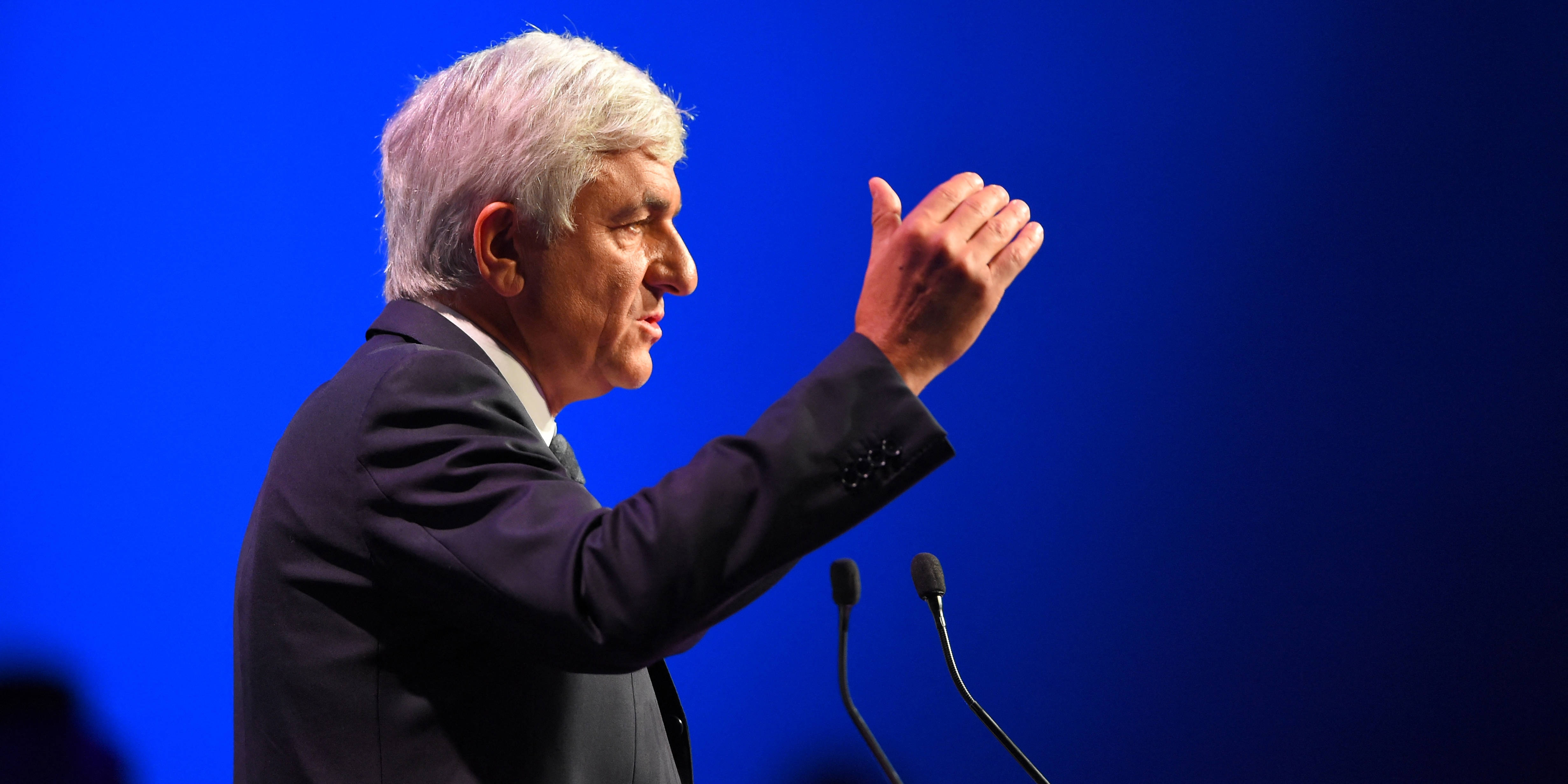According to an Ifop poll for Europe 1 and "La Tribune", Hervé Morin would come first in the first round in the next Normandy regional election with 31% of the vote, ahead of the RN (26%).
According to the director general of the polling institute, he benefits from a significant "outgoing bonus" with a balance sheet deemed satisfactory.
The regional elections are fast approaching.
On June 20 and 27, the French will go to the polls to elect the heads of their regional councils.
In Normandy, an Ifop poll for Europe 1 and
La Tribune
foresees a duel between the current regional majority and the National Rally.
Hervé Morin, supported by the right, the centrists and the Modem, would come first in the first round with 31% of the vote.
But he would be followed by his opponent in the last elections, Nicolas Bay, who would gather 26% of the vote.
>> Find the morning show of the day in replay and podcast here
Two months before the elections, the director of Ifop, Frédéric Dabi, however, notes a great "uncertainty" among Norman voters, which could well tip the ballot.
"This poll shows a fairly fragmented political landscape in line with the presidential big bang of 2017. We have five lists that exceed 10%, which will therefore be able to hold on to the second round," he points out.
Regional identity at the heart of the ballot
The fact remains that the current centrist president of the Normandy region leaves with an "impressive outgoing bonus", according to the CEO of Ifop. "Hervé Morin benefits from a regional record deemed very satisfactory, with the feeling that he puts the Norman identity at the heart of his action." This is all the more crucial given that the French have recently returned to local political life, in particular at the regional level.
"We saw the regional fact prevail. A few years ago, when we asked the French which territorial level was too much, it was either the region or the department. Today, they no longer quote never the region. " According to him, the health crisis has amplified this trend. "The French have compared a central state deemed dysfunctional, which lacked flexibility and efficiency, with efficient regions, close to the people," concludes Frédéric Dabi.

